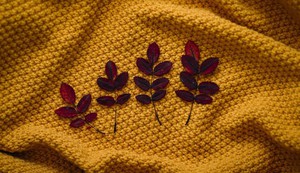- Clothes
- Bags
- Accessories
-
Inspiration
- Shoes
Recycled Fabrics & Upcycling Fashion: Green or Greenwashed?

The term upcycling is nothing new: it was first used by Reiner Pilz (a supplier of automation technology) in 1994 to describe a method ‘where old products are given more value, not less.’
However, there’s no denying that we’ve all heard this term a lot more often over the past few years when it comes to upcycling fashion.
From recycled fabrics to upcycled pieces, let’s see if reusing and repurposing old materials can be a sustainable alternative to sourcing and producing new fibres with a higher environmental footprint.
What is upcycled fashion?
Upcycled fashion means transforming unwanted materials, items, or pieces of them into garments and accessories of higher value.
While it’s a form of recycling, upcycled clothes and items don’t always come from other recycled fabrics.
Upcycling vs recycling: what’s the difference when it comes to fashion?
Both upcycling vs recycling consist of reusing materials that would otherwise be discarded and end up in our landfills or oceans (thumbs up to both of them!).
However, there’s a major difference:
- In fashion, upcycling means prolonging the lifespan of a specific material, so it mainly involves clothes made by reusing a piece of fabric (either from unwanted clothes or deadstock material).
- Recycling in the fashion industry involves transforming different objects into fabrics and materials suitable for creating clothes and accessories (for example, some companies have found ways of turning rubber tyres into laptop bags or using plastic from discarded bottles to make bathing suits). The main difference between the two is that for recycling you completely deconstruct the material and make it into new material, while for upcycling you use the material as it is and use it for something different.
Pros & cons of recycled fabrics & upcycled clothes
When a brand chooses to create upcycled clothes or use recycled fabrics, this translates into lots of benefits both for the planet and end consumers like yourself:
- Element of creativity
- Each product is one of a kind, especially with upcycled clothes
- Reduced waste as they prevent unwanted items and fabrics to end up in landfills
- Saving natural resources by using materials that have already gone through a production stage
- Reduced carbon footprint for the same reason (both the extraction and the manufacturing of raw materials leads to higher CO2 emissions)
- Supporting small sustainable brands rather than fast fashion giants
To be honest, it was hard to find negative aspects when it comes to such a sustainable solution.
We guess the only things we could mention are:
- The problem of shedding microplastics when washing these garments still exists if they’re made with recycled plastic or synthetic fabrics
- Potential lack of transparency allowing some mills to deliberately over-produce fabrics which fashion companies buy and greenwash as deadstock fabric
As for the second point, this can easily be avoided by choosing ethical fairtrade brands that are transparent about their supply chain.
Is upcycling clothing sustainable?
Yes, when done right, upcycling clothing is one of the most sustainable fashion practices!
By helping reduce waste and carbon emissions, recycled and upcycled clothes can be considered to be some of the most environmentally friendly fabric choices.
Finding upcycled fashion on Project Cece
Since we gather the collection of over 400 fairtrade brands, it shouldn’t come as a surprise that you can find lots of recycled and upcycled clothes on Project Cece.
Some of our favourite upcycled fashion brands are Gaâla, Paguro Upcycle, and Masha Maria, but you can scout for many more by using our ‘recycled material’ filter.
Let’s give a hand to these innovative companies promoting a more circular fashion model!
Share our story
Related articles
Is Deadstock Fabric Sustainable or Is It Greenwashing?
Many companies pride themselves in using leftover textiles, but is deadstock fabric as sustainable as they claim or just another form of greenwashing? Let’s see.
Best UK Ethical Fashion Brands: Guide & Inspo (No Brexit Fees)
Falling in love with the best ethical fashion brands in the UK will allow you to avoid current import duties and reduce the carbon footprint of your clothes.
What Are the Most Sustainable Fabrics? Oh, Sew Eco-Friendly!
‘Natural’ doesn’t always = ‘eco-friendly’! So, here’s a simple list of the most sustainable fabrics, why they’re good for the planet, and how to find them.
Project Cece is a platform that collects ethical fashion from vetted brands and shops in one place. Browse ethical fashion for women and men and find items that fit your style, budget and values!






